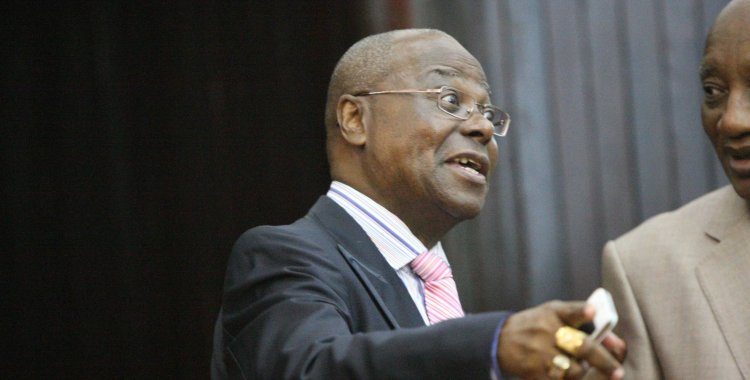"We must recognize that these three elders, alluding to Agostinho Neto, for the MPLA, Jonas Savimbi, for UNITA, and Holden Roberto, for the FNLA, at that time were brave and others who surrendered in all circumstances, it was worth the independence, yes ", said Ernesto Mulato, speaking to Lusa.
The politician of the National Union for the Total Independence of Angola (UNITA), recalls that on November 11, Angola's Independence Day, proclaimed in 1975, it was agreed in Alvor (agreement signed, in January 1975, between the Portuguese Government and Angola's three liberation movements) at the suggestion of the FNLA.
November 11th "is not one of the three movements but it is for Angolans, it is ours, of all, because we celebrate November 11th in the woods". "So, the struggle of these three movements against Portuguese colonialism paid off, despite some mistakes made".
Ernesto Joaquim Mulato, 80, started his active political life in 1959, having in the 60s militated in the UPA (Union of the Peoples of Angola) movement that later emerged for the National Front for the Liberation of Angola (FNLA), led by Holden Roberto.
A UNITA activist, since the 1960s, recalls that, after studying abroad, he returned to the country in April 1975, on the eve of independence, he was part of a delegation led by Jonas Savimbi, the founding leader of UNITA, that the 26 April 1975 was received in apotheosis in Luanda.
"Arriving here, Luanda shuddered, with a lot of support and that was worrying the other parties and since then we have already started to experience some skirmishes", he recalls, stressing that despite "several attempts at dialogue" UNITA was expelled from Luanda.
"And from then on the situation was already shaky and what was being thought is what could be done if the MPLA (Popular Movement for the Liberation of Angola) proclaimed independence and Dr. Savimbi said that if it is proclaimed, we will continue to do something resistance, "he said.
Angola's independence was proclaimed in Luanda, on November 11, 1975, by the MPLA leader, Agostinho. UNITA, said Ernesto Mulato, also proclaimed that day, in Huambo province, independence without the presence of Jonas Savimbi.
"We also did it in Huambo, but Dr. Savimbi was not present, but we knew he had no legs to walk, because here was the capital, but that was just a sign and after that the situation was still difficult", he noted.
According to this former vice president of UNITA, "it was already decided by the Portuguese" that independence would be given to the MPLA, which they could not officially do, and that is why they wanted Alvor to be discussed in less than a month ".
"Portugal already had the idea of giving independence to the MPLA, through the influence of the Portuguese Communist Party, but officially they could not do it, but it was here that they did it", he argued.
Despite the controversies of the time, said the current third vice-president of the parliament, the 11th of November "was worth it", but, he observed, "the adjacent objectives of the movements, why they fought to liberate the country, were not achieved" .
"Some were achieved, but most of the objectives were not. What was lacking was a more inclusive view of the country, first, I am one of those who thinks that the mistake of us from Angola, Mozambique and perhaps also a little from Guinea-bissau, perhaps they fell into an error, which after independence they should define how to govern the country from then on ", he said.
Looking at the current socio-economic and political context in Angola, 45 years after the end of the Portuguese colonial rule, Mulato says that "nothing has changed", especially in Luanda, the country's capital, with "bumpy neighborhoods, with no roads or urbanization".
For this nationalist, born in the municipality of Bembe, province of Uíge, Angola still has a "long way to go, because we had a centralized economy system, but then we entered primitive capitalism".
"So, until today, we have not managed to do anything economically for the development of our country and all this happens because our country is not managed in the same way as an administrative administration", he stressed.
Because, he pointed out, "this is the only way to explain that we insist that the governor is the first party secretary (MPLA), the administrator is the first secretary of the MPLA party). Lack of cadres and money to pay for these cadres?", He asked.
Ernesto Mulato also considers that the country needs to do "deep work" that "raises the awareness of the population to know that after 45 years we will leave out if there was a civil war here and there, but let's take it from 2002 until now".
The way in which Angola is governed, he added, "will not change any more, it will always be the same, and if we have another five years with the MPLA the country is always postponed, here there must be the first alternation of party".
Mulato also understands that in Angola, "until the first party alternation occurs, the country will not advance and as a member of UNITA I will continue to fight, as the other parties do, so that this alternation is with my party".
Ernesto Joaquim Mulato, civil construction engineer, was born on August 12, 1940.







